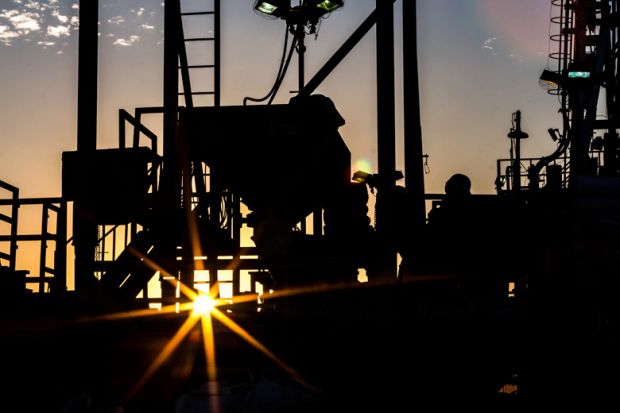There has probably never been a quiet time to be director of the British Council in Iraq in recent years, but Amir Ramzan has had a particularly tough gig.
Speaking to journalists in London earlier this month about his two-year stint in the country, the outgoing director recounted how shortly before taking up the post in September 2014, Islamic State captured large swathes of the country.
To make matters worse, the price of oil – which makes up about 90 per cent of Iraq’s government revenue – fell by more than half during the latter half of the year, forcing the government to spend billions of dollars of reserves just to keep existing spending commitments, also meaning it had to cut back on overseas scholarships.
Compared with when he had been appointed to the position the previous year, there was a “very, very different situation on the ground when I arrived in September [2014],” Mr Ramzan said.
But amid the bad news, he stressed that there were positive changes occurring in Iraqi higher education. Despite the rise of Islamic State, most universities were operating normally and displaced university students had been relocated to other institutions.
“I visited Najaf, which is one of the most important cities in Shia Islam, and the university leadership said ‘we welcomed Sunni students from those [Islamic State controlled] areas to come to our university’,” he recounted. “It was really nice to see the higher education community pull together.”
The plunge in the price of oil has also forced a long-overdue debate about Iraqi students’ assumption that a university degree automatically leads to a comfortable public sector job – an expectation thought to be behind much of the frustration and anger of unemployed graduates across the Middle East and North Africa region during the Arab Spring.
“The public sector is hugely bloated, not just in Iraq but in the countries in Mena as well,” Mr Ramzan said.
Given the fall in revenues, “the government is not able to absorb more – in fact, it needs to release people from the public sector”, continued Mr Ramzan, who leaves to head up the British Council in Saudi Arabia.
“So that’s creating a lot of debate now around what people who go to university do when they come out,” he said. “There’s a lot more entrepreneurship – social entrepreneurship and private entrepreneurship.”
He added: “The expectation has been that government is responsible for everything and will take care of everything. But that’s changing."
One of the more surreal moments of Mr Ramzan’s tenure came when putting on events in the country to mark the 400th anniversary of William Shakespeare’s death.
“A lot of Iraqis thought Shakespeare was Iraqi,” he explained. Many believed that “Shakespeare” was an English corruption of his true Arabic name, he added. “I did get into a couple of heated discussions about this, and assured them that this wasn’t a conspiracy, and I don't know if they quite believed me or not.”
POSTSCRIPT:
Print headline: Oil price crash prompts debate on graduate jobs in Iraq’s public sector
Register to continue
Why register?
- Registration is free and only takes a moment
- Once registered, you can read 3 articles a month
- Sign up for our newsletter
Subscribe
Or subscribe for unlimited access to:
- Unlimited access to news, views, insights & reviews
- Digital editions
- Digital access to THE’s university and college rankings analysis
Already registered or a current subscriber?


